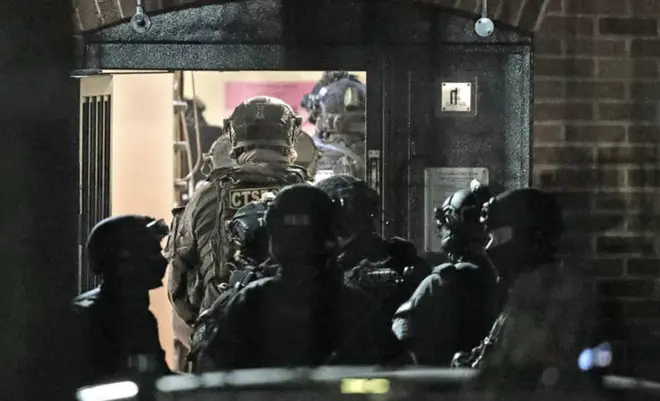
Matthew Wright 7am - 10am
23 June 2020, 21:36 | Updated: 23 June 2020, 21:39

Reading attack: journalist tells Iain Dale "what the media isn't saying"
This editor said that when terror attacks occur the media "duck the whole question" of whether asylum seekers with certain ideology should even be allowed into the UK - he asks why "we can't have a reasonable conversation about it?"
Three people died and another three were seriously injured after multiple stabbings at a park in Reading, Thames Valley Police confirmed.
It has since been identified the three men who died were gay which Douglas Murray believed was an element the media were avoiding publicising.
Detectives said a 25-year-old man from the area was arrested at the scene on suspicion of murder and is currently in custody. The suspect is a Libyan refugee understood to have been granted asylum in the UK and mental health is being considered a major factor in the incident, a security source said. The suspect was later identified as Khairi Saadallah.
Associate Editor of the Spectator Douglas Murray wrote an article entitled "What isn't being said about the Reading attack victims".
Mr Murray said one of the problems of our era is "that everybody can see through the media, we can all see when the media appears to be doing something like particularly focusing on one type of crime, not focusing on another."
The editor posits that in some cases of this sort news outlets are fearful of speculating and other times they are not.

"If that had been an incident on Saturday night when three men, let alone three gay men, had been killed by somebody wearing a Make America Great Again hat we would have had days by now of speculation about motive, speculation about who was adjacent to the person who did it, who might have provided the mood music for that sort of thing."
He said while watching the News at Ten, "they could barely bring themselves to mention the fact that they were gay. They certainly didn't want to draw any lessons from it at all.
"I think this is the sort of thing that is dividing our society unnecessarily because there appears to be some kind of favouritism in the media about where you are allowed to speculate and where you are not.
"This is incredibly dangerous because it means as a society it means we end up not just choosing our own opinions, but choosing our own facts and at that point we can't talk across any political divide."
Iain questioned whether Mr Murray believed the media were treading carefully due to his ethnicity and the connotations of Islam.
"It's not just the Islam connotation it's the asylum seeker one," he said, acknowledging that journalists must be careful in reporting.
He said: "It's a very reasonable thing to say not just what is the potential mental health component of this attack, what is the potential drugs-related component of this attack, but also what is the component of this attack that has to do with the fact that here was a young man who came from Libya, who this country gave asylum to. Was that for instance a wise thing to have done?"
Mr Murray posited that there has been an element in other terror attack reporting in the UK where the "same conversation is ducked", using the example of the first London Bridge attack.
"Why can't we have a conversation reasonably about asylum, what ideas people bring with them when they come to this country, what the net benefits or otherwise are? I think it's very strange as a country we still feel we're not mature enough to have that conversation."
Iain countered that the overwhelming majority of asylum seekers that come to the UK are entirely peaceful and the terrorists are a few "bad apples."
Mr Murray agreed and clarified that his question: "What is it about this particular part of the issue that remains so incredibly sensitive that large proportions of the media basically duck the whole question?"